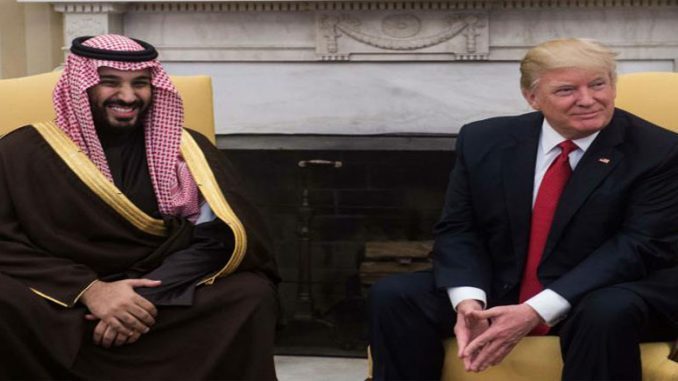
The new heir to Saudi Arabia’s throne has launched a crackdown on dissent in recent weeks, attempting to silence activists and critical clerics as well as his deposed predecessor, the Wall Street Journal said in a report, citing US and Saudi officials familiar with the events.
King Salman upended Saudi Arabia’s succession order last month by naming his 31-year-old son, Mohammed bin Salman, crown prince and next in line to the throne, and sidelining his nephew and heir apparent, Mohammed bin Nayef, who has deep ties to US intelligence and is widely viewed by US officials as a stabilizing force in the region.
The newly elevated crown prince has limited the movements of Mohammed bin Nayef, the officials said. He has also replaced Mohammed bin Nayef’s guards with ones loyal to the royal court, they said, in a bid to ensure that Mohammed bin Nayef doesn’t take any steps to rally support.
“They want to make sure nothing is being plotted,” one of these people said.
Referring to Mohammed bin Nayef, a representative of the Saudi royal court said in a text message that there were “no restrictions on his movement whatsoever, either in or outside of Saudi Arabia.” The prince has hosted guests since the leadership change, the representative wrote in an emailed statement.
US and Saudi officials said the royal court’s efforts to stifle dissent within the kingdom include monitoring and in some cases infiltrating the social media accounts of some activists and bloggers.
Some activists and religious figures viewed as stirring protest on social media have also been summoned in person to meet with interior ministry officials, and at least one of those people was told by officials to quiet down or face jail time, according to people familiar with the matter.
The royal court official didn’t respond to questions about the broader attempt to stifle dissent that the people familiar with the situation described.
Political parties are banned in Saudi Arabia as are protests, unions are illegal, the press is controlled and criticism of the royal family can lead to prison. Since the 2011 Arab Spring, the kingdom has stepped up efforts to curb dissent with tough laws, sentencing offenders to prison terms for Web posts deemed insulting to rulers or threatening to public order.



